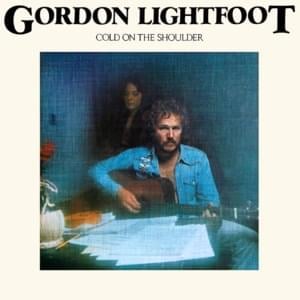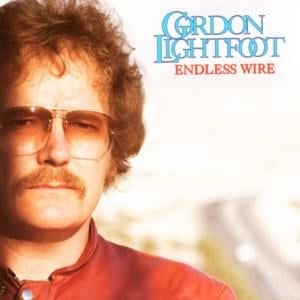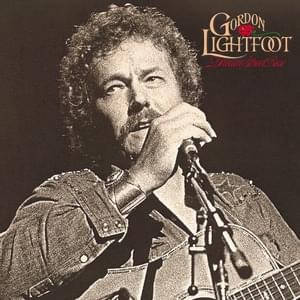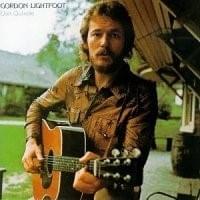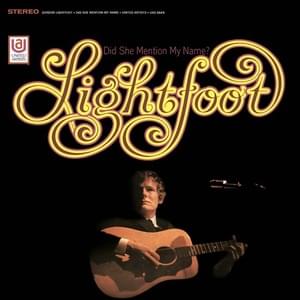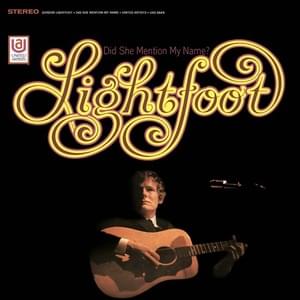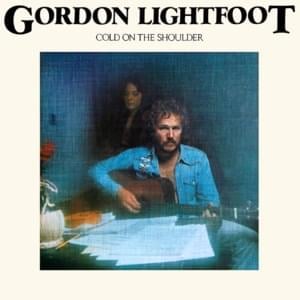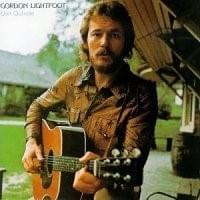Canadian railroad trilogy de Gordon Lightfoot
Letra de Canadian railroad trilogy
There was a time in this fair land when the railroad did not run
when the wild majestic mountains stood alone against the sun
long before the white man and long before the wheel
when the green dark forest was too silent to be real
But time has no beginnings and hist'ry has no bounds
as to this verdant country they came from all around
they sailed upon her waterways and they walked the forests tall
and they built the mines the mills and the factories for the good of us
all
And when the young man's fancy was turnin' to the spring
the railroad men grew restless for to hear the hammers ring
their minds were overflowing with the visions of their day
and many a fortune lost and won and many a debt to pay
For they looked in the future and what did they see
they saw an iron road runnin' from sea to the sea
bringin' the goods to a young growin' land
all up through the seaports and into their hands
Look away said they across this mighty land
>from the eastern shore to the western strand
bring in the workers and bring up the rails
we gotta lay down the tracks and tear up the trails
open 'er heart let the life blood flow
gotta get on our way 'cause we're movin' too slow
Bring in the workers and bring up the rails
we're gonna lay down the tracks and tear up the trails
open 'er heart let the life blood flow
gotta get on our way 'cause we're movin' too slow
get on our way 'cause we're movin' too slow
Behind the blue rockies the sun is declinin'
the stars, they come stealin' at the close of the day
across the wide prairie our loved ones lie sleeping
beyond the dark oceans in a place far away
We are the navvies who work upon the railway
swingin' our hammers in the bright blazin' sun
livin' on stew and drinkin' bad whiskey
bendin' our old backs 'til the long days are done
We are the navvies who work upon the railway
swingin' our hammers in the bright blazin' sun
layin' down track and buildin' the bridges
bendin' our old backs 'til the railroad is done
So over the mountains and over the plains
into the muskeg and into the rain
up the st. lawrence all the way to gaspe
swingin' our hammers and drawin' our pay
drivin' 'em in and tyin' 'em down
away to the bunkhouse and into the town
a dollar a day and a place for my head
a drink to the livin' and a toast to the dead
Oh the song of the future has been sung
all the battles have been won
o'er the mountain tops we stand
all the world at our command
we have opened up the soil
with our teardrops and our toil
For there was a time in this fair land when the railroad did not run
when the wild majestic mountains stood alone against the sun
long before the white man and long before the wheel
when the green dark forest was too silent to be real
when the green dark forest was too silent to be real
and many are the dead men too silent to be real
Traducción de Canadian railroad trilogy
Letra traducida a Español
Hubo un tiempo en esta hermosa tierra cuando el ferrocarril no funcionaba,
cuando las majestuosas montañas salvajes permanecían solas ante el sol,
mucho antes del hombre blanco y mucho antes de la rueda,
cuando el verde y oscuro bosque era demasiado silencioso para ser real.
Pero el tiempo no tiene principios y la historia no tiene límites,
pues a este país verde vinieron de todas partes.
Navegaron por sus aguas y caminaron por los altos bosques,
y construyeron las minas, los molinos y las fábricas para nuestro bien.
Y cuando la fantasía del joven se tornaba en primavera,
los hombres del ferrocarril se sentían inquietos por escuchar sonar los martillos;
sus mentes estaban desbordando con visiones de su época,
y muchas fortunas se perdieron y ganaron, y muchas deudas que pagar.
Porque miraron al futuro y qué vieron?
Vieron una carretera de hierro corriendo de mar a mar,
trayendo bienes a una joven tierra en crecimiento,
todo a través de los puertos marítimos hasta llegar a sus manos.
"Miren", decían ellos, "a través de esta poderosa tierra,
desde la costa oriental hasta la ribera occidental;
traigan a los trabajadores y levanten las vías;
tenemos que colocar las traviesas y abrir nuevos caminos.
Abramos su corazón para que fluya la sangre vital;
tenemos que ponernos en marcha porque vamos demasiado despacio".
Traigan a los trabajadores y levanten las vías;
vamos a colocar las traviesas y abrir nuevos caminos.
Abramos su corazón para que fluya la sangre vital;
tenemos que ponernos en marcha porque vamos demasiado despacio.
¡Ponámonos en marcha porque vamos demasiado despacio!
Detrás de las azules montañas el sol declina;
las estrellas empiezan a aparecer al cerrar el día.
A través de la amplia pradera nuestros seres queridos duermen,
más allá de los oscuros océanos en un lugar lejano.
Nosotros somos los peones que trabajan en el ferrocarril,
swingando nuestros martillos bajo el brillante sol ardiente;
vivimos de estofado y bebemos mal whisky,
doblando nuestras viejas espaldas hasta que concluyan largas jornadas.
Somos los peones que trabajan en el ferrocarril,
swingando nuestros martillos bajo el brillante sol ardiente;
colocando vías y construyendo puentes,
doblando nuestras viejas espaldas hasta que termine el ferrocarril.
Así sobre las montañas y sobre las llanuras,
entrando en terrenos pantanosos e inundaciones;
subiendo por San Lorenzo hasta Gaspé:
swingando nuestros martillos y cobrando nuestro salario.
Clavándolos e atándolos bien;
de vuelta al barracón e incluso al pueblo:
un dólar al día y un lugar donde apoyar mi cabeza —
un brindis por los vivos y un homenaje a los muertos.
Oh, la canción del futuro ha sido entonada;
todas las batallas han sido ganadas:
sobre las cumbres montañosas estamos juntos:
todo el mundo está bajo nuestro mando.
Hemos abierto la tierra
con nuestras lágrimas y nuestro esfuerzo;
porque hubo un tiempo en esta hermosa tierra cuando el ferrocarril no corría—
cuando las majestuosas montañas salvajes permanecían solas ante el sol—
mucho antes del hombre blanco y mucho antes de la rueda—
cuando el verde oscuro bosque era demasiado silencioso para ser real—
cuando el verde oscuro bosque era demasiado silencioso para ser real—
y muchos son los hombres muertos también demasiado silenciosos para ser reales.
0
0
Tendencias de esta semana
Datos no encontrados
